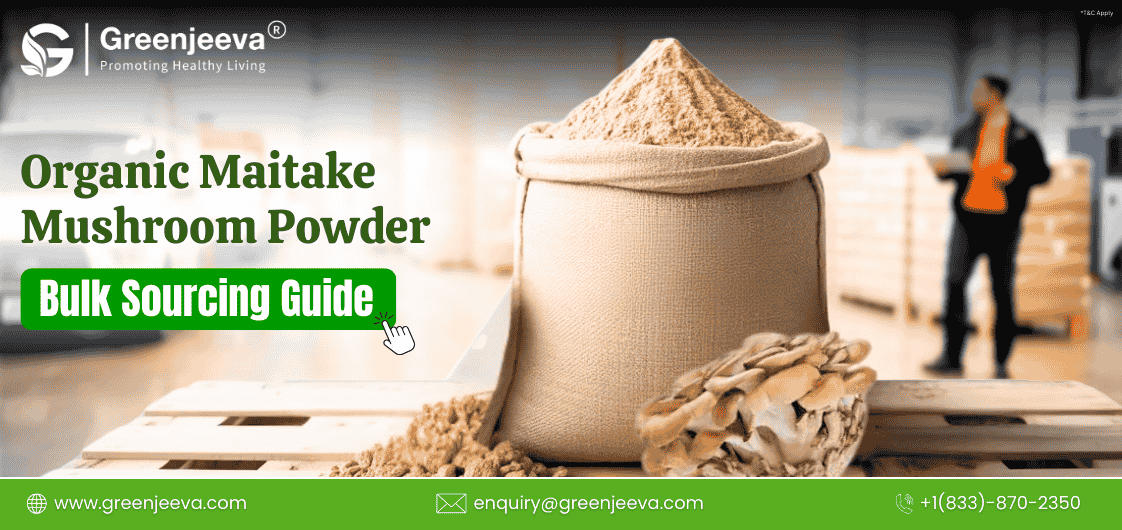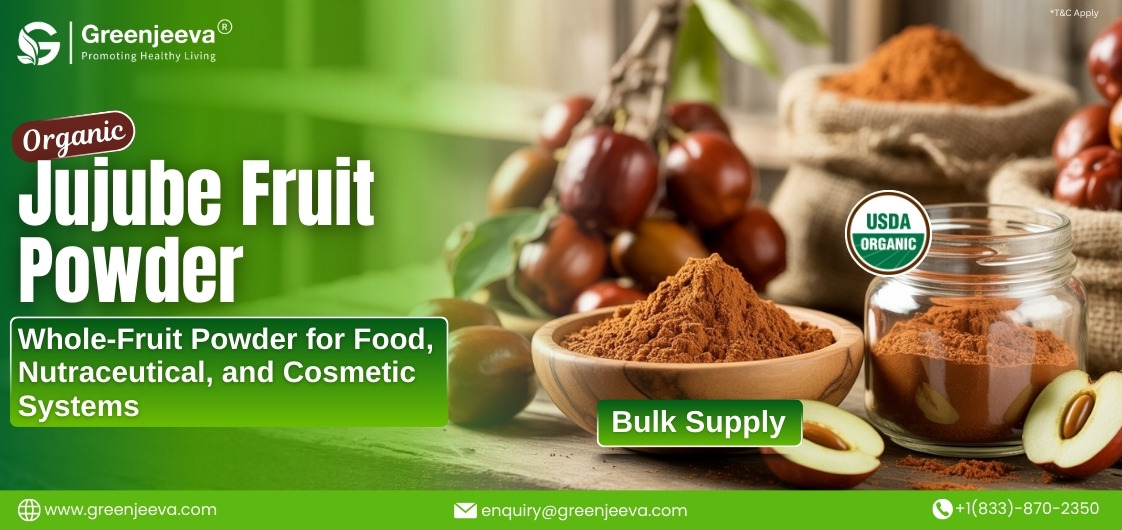Unlocking Growth in the B2B Market: Harnessing the Power of Health-Boosting Ingredients

In the competitive B2B market, businesses must strive to meet consumers' health-conscious preferences to stay ahead. A compelling strategy for achieving this is incorporating health-boosting ingredients into supplements, teas, and functional foods.
This blog delves into the immense growth potential available in the B2B market by harnessing the power of these ingredients. By understanding the increasing demand for health-focused products and leveraging the benefits offered by these ingredients, businesses can position themselves as leaders and capture new opportunities for success.
Exploring the Health Benefits:
Incorporating health-boosting ingredients into B2B products offers many specific benefits that cater to consumers' well-being.
Let's delve into some key ingredients and the scientific research supporting their potential advantages:
Spirulina: Spirulina, blue-green algae, is rich in nutrients and antioxidants. Its potential immune-boosting and detoxifying effects have garnered attention in the health industry. Spirulina's high protein content and nutrient profile make it an attractive ingredient for supplements targeting immune support and wellness.
Moringa: Moringa, a nutrient-dense plant, offers potential antioxidant, properties. Its high content of vitamins, minerals, and phytochemicals makes it a valuable ingredient in supplements to promote health and well-being.
Matcha: Matcha, a concentrated powdered form of green tea, contains even higher antioxidants. It is often utilized for its potential energy-boosting and metabolism-enhancing effects. Matcha's unique composition makes it a popular ingredient in functional beverages and wellness-focused products.
Ashwagandha: Ashwagandha, an adaptogenic herb, offers potential stress-reducing and mood-enhancing properties. Studies show that it may help reduce cortisol levels, ease anxiety, and improve well-being, making it a valuable addition to stress relief supplements and teas.
Turmeric: Turmeric, renowned for its active compound curcumin, possesses impressive properties. Many studies suggest that curcumin can support joint health and might reduce the risk of chronic diseases.
Ginger: Ginger is a popular ingredient known for its digestive benefits. It contains bioactive compounds that aid digestion and reduces nausea. Scientific research also suggests its potential medicinal effects, making it a sought-after ingredient in functional foods.
Green Tea: Green tea is rich in antioxidants and known for its potential benefits in weight management. The catechins found in green tea have been associated with many curative properties.
Ginseng: Ginseng, another adaptogenic herb, is believed to support energy levels and well-being. Research suggests that it may reduce fatigue, and reduce stress, making it an appealing ingredient for supplements targeting energy and vitality.
Maca: Maca, a root vegetable, is used for its potential benefits in supporting hormonal balance, energy levels, and sexual health. Scientific studies state that maca may help improve libido, enhance mood, and ease symptoms of hormonal imbalances, making it a sought-after ingredient in functional foods and supplements.
Probiotics: Probiotics, beneficial bacteria in supplements and functional foods, are renowned for supporting gut health and digestion. Research suggests probiotics can help balance gut microbiota, improve digestive function, and might enhance immune response.
These ingredients, backed by scientific research, offer a range of health benefits. Incorporating them into B2B products allows businesses to meet consumers' health-conscious preferences and offer effective solutions for their well-being needs.
Meeting Consumer Demand: The B2B market is witnessing a rise in demand for health-conscious products driven by a growing awareness of well-being. Consumers seek natural, plant-based ingredients. Businesses can capitalize on this demand by adapting their offerings, leveraging health-boosting ingredients, understanding consumer preferences, and keeping up with emerging health trends.
Formulating Effective Products: Formulating products that harness health benefits requires dosage considerations, exploring synergistic ingredient combinations, sourcing high-quality ingredients, ensuring product stability, offering customizable solutions, basing decisions on scientific research, and complying with regulatory standards.
Partnering with Reliable Suppliers: Establishing partnerships with reliable suppliers is crucial for sourcing high-quality ingredients. Reliable suppliers focus on quality assurance, transparency, sustainable sourcing practices, and certifications and have a positive reputation and industry experience.
Addressing Regulatory Considerations: Businesses must navigate regulatory requirements when marketing and labeling products. This involves complying with industry standards and certifications, understanding health claims regulations, meeting labeling requirements, prioritizing safety considerations, and seeking legal and regulatory guidance.
Industry Innovations and Future Trends: To stay ahead, businesses must embrace emerging consumer preferences and leverage new ingredients, technologies, and formulations. This includes exploring novel ingredients and developing functional and targeted formulations that cater to specific health concerns or consumer groups.
Also Read: https://www.greenjeeva.com/blog/unlocking-beetroot-powder-potential
Conclusion:
By incorporating health-boosting ingredients, understanding consumer preferences, partnering with reliable suppliers, addressing regulatory considerations, and embracing industry innovations, B2B businesses can position themselves as leaders in the health and wellness industry, offering effective and desirable products that meet consumer needs.
Disclaimer:
***These statements have not been evaluated by the Food and Drug Administration. This product is not intended to diagnose, treat, cure, or prevent any disease.***






